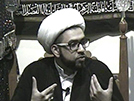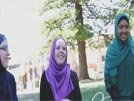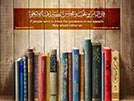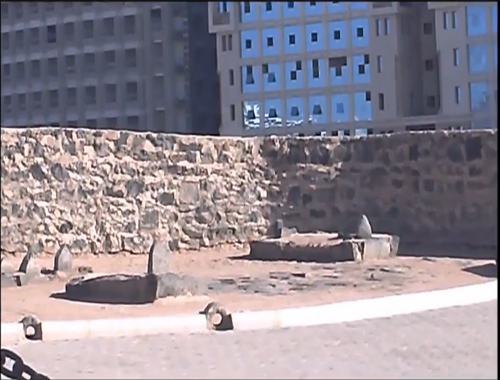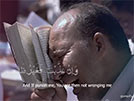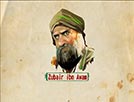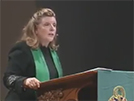The Twenty-Ninth Greater Sin: Helping the Oppressors
- Details
- Hits: 2147
Chapter 31
The Twenty-Ninth Greater Sin: Helping the Oppressors
--------------------------------------------------------------------------------
The twenty-ninth sin, that is classified as a Greater Sin is ‘Helping the oppressors’. Fazl Ibn ShazÄn has narrated from Imam RiÄa (a.s.) that he said concerning the Greater Sins:
“And helping the oppressors and bending (leaning) towards them.”
In the narration of Amash from Imam Sadiq (a.s.) the following is mentioned, “Not helping the oppressed people is a Greater Sin.” In other words helping the oppressors is also a Greater Sin.
Imam Musa Ibn Ja’far (a.s.) says:
“To participate in the activities of the oppressors and to endeavour to achieve their evil objectives and to help them is equal to infidelity and to knowingly lean towards them is a Greater Sin and deserves Hell.”
(Wasa’il ul-Shia)
The Holy Prophet (S) similarly says:
“On the night of ascension (Miraj), I saw the following inscription on the doors of Hell, ‘DO NOT BE A HELPER OF THE OPPRESSORS.’”
(Wasa’il ul-Shia)
It means that if one does not wish to enter Hell he must refrain from co-operating with the oppressors. Moreover, this is a sin that is promised Divine punishment by the Almighty in the Holy Qur’an.
“And do not incline to those who are unjust, lest the fire touch you, and you have no guardians besides Allah, then you shall not be helped.”
(Surah HÅ«d 11:113)
According to TafsÄ«r Minhaj us-SÄdiqÄ«n ‘do not incline’ means we must not have the slightest inclination towards the oppressors. Hence we must not treat them honourably nor mix with them freely nor express our affections for them. We must not be greedy of their gifts, nor should we praise them and obey their orders. When such are the prohibitions against the oppressors, it is obvious that then it cannot be lawful to help them and co-operate with them in oppression.
The Messenger of Allah (S) remarks,
“One who prays for the long life of an oppressor is as if he likes the opposition of Allah on the Earth.”
(Minhaj us-SÄdiqÄ«n)
There is an interesting incident in the book RawzÄtul Jannat concerning the author of Maqasikul Ahkam, Sayyid Muhammad. Once the Sayyid and another respected teacher, Shaykh, planned a pilgrimage to the Holy tomb of Imam RiÄa (a.s.) at Mashad, but when they learned that Shah Abbas Safavi was staying at Mashad they decided to cancel their visit.
Similarly under the biography of Sayyid Bahrul UlMansÅ«rm it is mentioned that when the Governor of Shustaran Province behaved with utmost respect with him, he says, “Before I could develop some liking for him and come under the denouncement of the Qur’anic Verse, I fled from that place.” Thus he shifted from Dezful and settled down in Iraq for the rest of his life.
When we study the biographies of some scholars we realize how strictly they refrained from meeting, mixing with or communicating with the oppressors, so that there would not be even a remote chance for them to befriend them and help them in their activities.
Muhaddith Jazaeri writes in the book Fawaidur Rizvia that there was a person who committed some blunder in the presence of Shah Abbas Safavi and in order to escape his wrath took refuge in Mashad. Then he approached the late Mulla Ahmed (Muqaddase Ardebeli) and requested him to write to the Shah that he may forgive his mistake. Muqaddase Ardebeli wrote as follows:
“Founder of a kingdom obtained through asking, Abbas! Know that even though this man was initially an oppressor, but he is now an oppressed one. So, overlook his mistake. I hope Allah will forgive some of your mistakes.”
Signed: From the slave of the king of WilÄyat, Ahmed Ardebeli.
The Shah replied to his letter:
“You have been grateful upon me for ordering those things which you did (in your letter). Do not neglect me in your invocations.”
Signed: Dog of the House of ‘Ali, Abbas.
It is quoted from Tarikh Bahire that Khwaja Nizamul Mulk the Prime Minister of Malik Shah Seljuq, was very much thoughtful of the Hereafter and the Day of Judgement and he used to be fearful in this regard. During the tenure of his ministry he was a supporter of the helpless, a patron of intellectuals, and steadfast in following the religious obligations. He thought of obtaining a certificate from the scholars and intellectuals, certifying his good morals, so that the document could be kept inside his shroud during burial. He hoped to achieve salvation by this. He drafted a certificate and sent it to various scholars and intellectuals for their signatures. When it reached Baghdad and was presented before the respected teacher of Nizamiya Madrassa, Shaykh Abu Ishaq, he wrote, “I witness that Shaykh Nizamul Mulk is slightly better (oppressor) from among the oppressors.”
When Khwaja saw the remark of Abu Ishaq, he wept and said: “Whatever Abu Ishaq has written is true.” There is no doubt that helping the oppressors in any way is HarÄm and a Greater Sin. There is an Islamic law for every kind of oppressor and the ways of helping the oppressors, and it is incumbent to learn these rules and commands.

